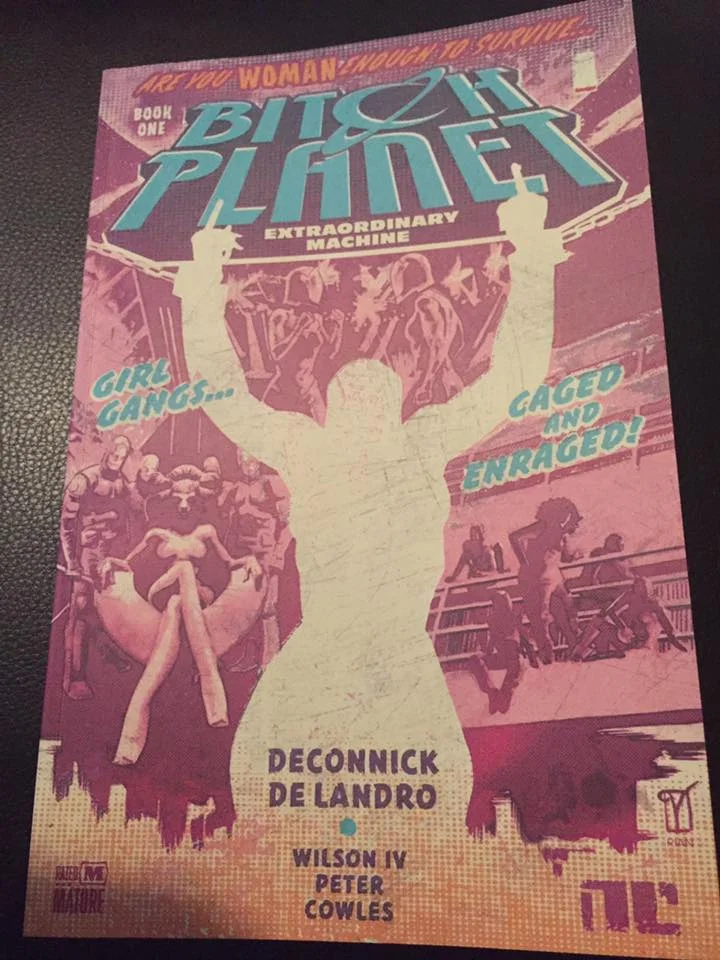Bitch Planet
Stories revolving around what societies are or what they can become always make me...uncomfortably sad. There's a particular pain I feel reading about situations where the deck is stacked against people on an institutional level. However, it is a painful truth that the deck is always being stacked against some individual or some group. Or multiple groups all at once.
Which is why comics like Bitch Planet are among my favorite types of stories to read; they allow the writer to be brazenly honest in their attempts to translate this feeling to an audience.
This is a world where "non-compliant" women are sent to a prison on different planet(the title is very on the nose by the way). You can be sent away for anything from actual crimes like assault and murder to things like "seduction and disappointment" or "disrespect." Or you can just straight up pay to have an inconvenient woman in your life sent away to a hellish planet to live out the rest of their days.
Now, I was stoked to read this story as soon as I heard about it based on the promise of a prison planet, because that's always fun as hell. But what ultimately hooked me was the fact that Bitch Planet really has a lot to say.
When a society is institutionally and fundamentally flawed, the damage it causes bleeds into every facet of it's world. The flaws become part of the advertisements we see, the conversations we have, even what we think we want becomes skewed. And Kelly Sue Deconnick has written a story that translates this idea very well.
One more thing I wanted to touch on was the men. Men in this story are protected and empowered in this world, but by being complicit with the inequality of its structure, they too have allowed themselves to become victimized by more powerful men. I thought it was a nice touch for Deconnick to point out that exploitation only begets more exploitation, no matter how high up the ladder you climb.
How much of the comic is a direct allegory for women/society today seems open to interpretation, as evidenced by the Discussion Guide provided on the last page. Not only does it pose some very interesting questions about the role of movements and intersectional feminism, a Discussion Guide is just something I've never seen a comic book do before, so I thought that was pretty cool.
Ultimately, this isn't a book asking you to believe this or think that, it doesn't beat you over the head with any one viewpoint. Instead, it exposes you to a series of experiences and it begs you to critically think about what it all means to you.
Final Note: Huge props to Valentine De Landro and the rest of the creative team responsible for the artwork, because goddamn there's a lot of character in these covers and pages.
